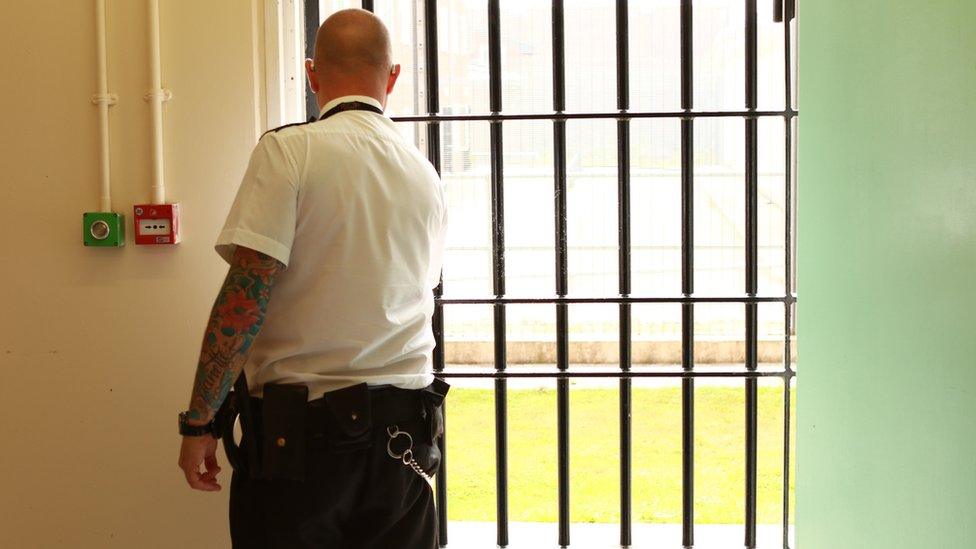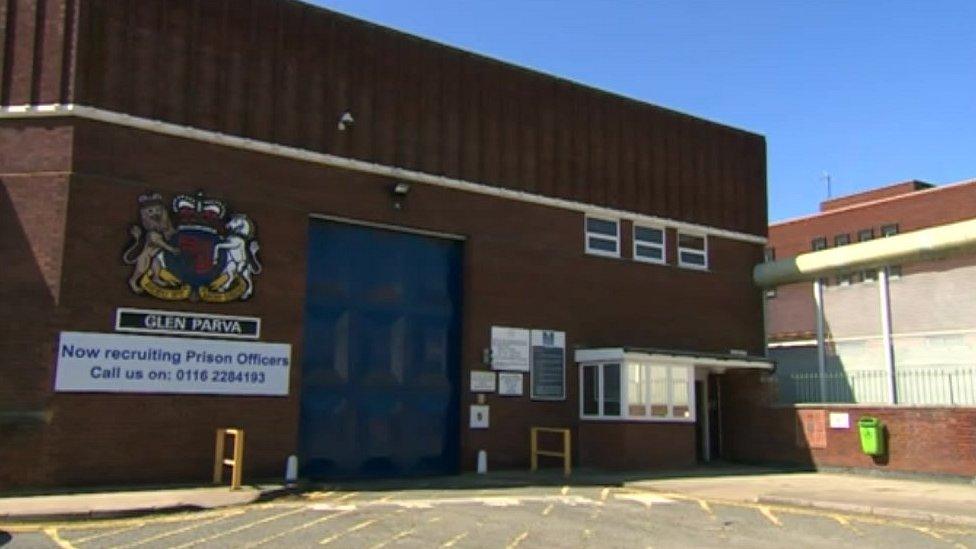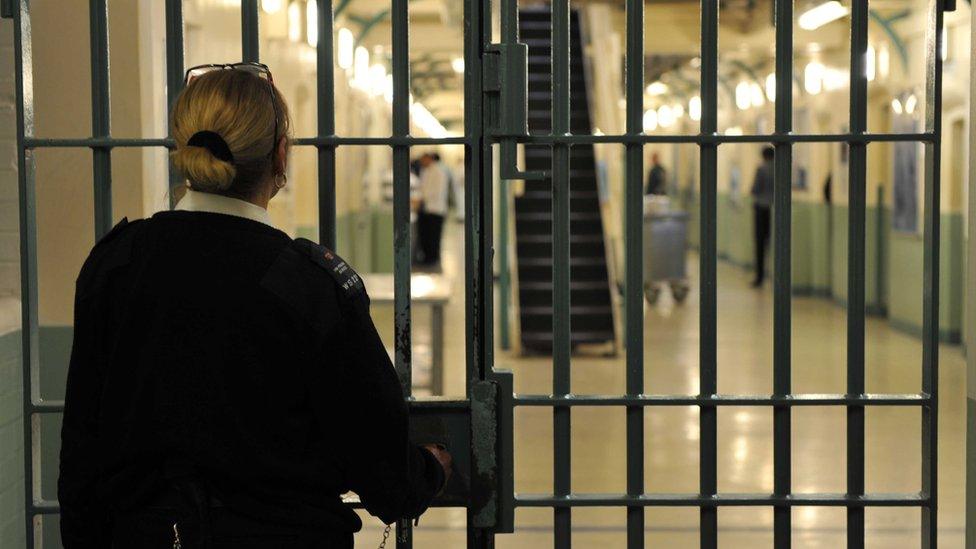Teenagers convicted of murder could face whole-life terms
- Published

The proposals also incude longer sentences for 15 to 17-year-olds who commit murder
Teenagers convicted of murder in England and Wales could receive whole-life terms under sentencing reforms described by the government as the most radical in almost 20 years.
Currently, a whole-life tariff can only be given to someone aged over 21 but ministers plan to reduce this to 18 for exceptional cases, such as terrorism.
A White Paper outlining further details will be published this week.
But Labour said the Tories had pushed the justice system "to the brink".
The proposals will also include whole-life sentences for those who kill children.
And there would be new powers to prevent the automatic release of offenders who have become radicalised behind bars while serving non-terror related sentences.
A whole-life - or so-called "life means life" - order means the criminal is in prison for the rest of their life without ever becoming eligible for parole. It differs from a life sentence, under which the prisoner is given a number of years they must spend in jail after which they will be eligible to apply for parole.
Whole-life tariffs are reserved for offenders judged to be the most dangerous to society.
The planned reforms come after Hashem Abedi, who helped his brother Salman plan the Manchester Arena bombing, was jailed in August for life and ordered to serve at least 55 years in prison.
He was under the age of 21 at the time of the murders so a whole-life order was not an option open to the courts.
Sentencing Abedi, Mr Justice Jeremy Baker said a whole-life order would have been a "just sentence" in the "exceptional circumstances" but said he still "may never be released".
Writing in the Sunday Express,, external Boris Johnson cited Abedi's case, saying if someone plots to deliberately kill dozens of people "then it doesn't matter if you're 'only' 18, 19 or 20 when you do so".
"We're going to remove a loophole that lets some truly despicable criminals avoid such a sentence because they're under 21 at the time of their crime," Mr Johnson added.
Crack down
Under the proposals, there will also be longer sentences for 15 to 17-year-olds who commit murder.
Justice Secretary Robert Buckland said: "From longer jail time for dangerous criminals to new measures to improve rehabilitation and cut reoffending - we are delivering a system that is more equipped than ever to crack down on crime, which the public can have confidence in to keep them safe."
But shadow justice secretary David Lammy accused the government of failures, citing a Prison Reform Trust report which stated there was a reoffending rate of 64% for those who spend fewer than 12 months in prison.
And shadow Northern Ireland secretary Louise Haigh said increasing sentences for younger terrorist offenders was "quite low down the list" of issues facing the criminal justice system.
Speaking on Sky's Ridge On Sunday, she added: "The criminal justice system is in complete disarray because of years of cuts, of privatisation of the probation system and of undermining of the courts and of the police."
A White Paper is expected to be published mid-week before legislation is laid before parliament in the new year.

TASTE AND SMELL: How are they connected?
RETURN TO FILMING: How has filming EastEnders changed?

- Published2 September 2020

- Published26 July 2020

- Published26 June 2020
